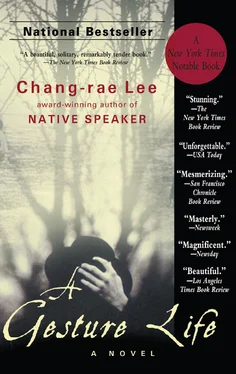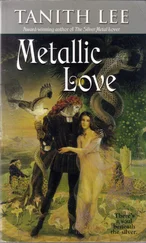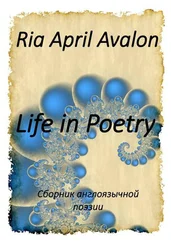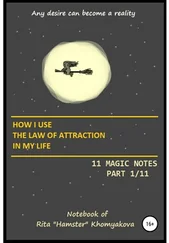For years I would never enter water that was even slightly cool, being accustomed to the shore in Singapore and Rangoon, the tropical, bath-like waters of the Andaman Sea. In the days before the war began to go badly, my comrades and I would take trips to the beach on our leave days, to swim and play volleyball and eat fresh-caught sea porgies and spiny lobsters and eels. The natives had been instructed to prepare them with a tiny ration of shoyu and the local palm wine, an attempt intended to make us feel comfortable but which unfortunately served more to remind us of Japan than anything else, and our immense distance from it. There was (for the others) much drinking, of course, and then the usual exploits of the balmy, lanterned evenings, singing folk songs at the stars with girls who hardly knew how to speak our language.
I used to swim after sunset on those occasions, the water placid and unrippled as I pulled my way through it. I could hear the laughter and joking of my comrades, and sometimes the strained, rote blandishments of their companions, the awkward attempts at flattery and passion which seemed unbearable to me, sober as I was. But as I swam I sometimes listened for the other ones, those girls who didn’t make much noise or speech, wondering at their quiescence as they lay beneath the palms of the shore, the snorting and grunting of men skipping out over the surface of the water in soft reports. Down the shoreline I would go, in my usual steady crawl, and each time I’d lift my face for air I glimpsed the limp strings of lights and the kerosene torches and the arm-in-arm straggles of youthful soldiers, joyously barefoot on their way back to the base, overfilled with wine and the mercies of fallen women.
Once, in admonishment, I mentioned to Sunny what could happen to young women who strayed from the security of their families, how they would inevitably descend to the lowest level of human society and be forced to sell every part of themselves, in mind and flesh and spirit.
“Is that so?” she answered.
“Yes, it is.”
“And how do you know so much about it?” she muttered, continuing to fold her clothes from the dryer. She had returned from the Gizzi house, to stay only briefly before moving on, this time out of town completely. There had been an incident at the house, a stabbing, in fact, a week or so after I made my visit there. James Gizzi had been the victim and was in critical condition at the county hospital. His friend, the black man named Lincoln, was accused of the crime and had not been arrested, having fled Bedley Run.
I said, “I witnessed many things during the war.”
She visibly paused at the notion, which was new to her, and had to refold a blouse before placing it on her neat stack of things.
“You must heed me on this, Sunny. I have seen what can become of young women. It is often unpleasant. Perhaps even more so these days than during wartime. The newspaper is filled with stories of awful happenings in the city, where girls are tricked and abused. You’re going to live down there, you said.”
“For now,” she answered limply, going back to her laundry. “I’ll probably move on.”
“Where will you stay? How will you support yourself? You’re only eighteen and you have no skills or experience. You’ll need to work. I can’t give you enough money to support you forever.”
“Don’t give me any then. I don’t want it.”
“But how will you manage? I’ve always provided everything for you. I’m not saying this to criticize. It is simply the truth. You haven’t lived on your own. These past few weeks, for example, you’ve been under the care of others—”
“I haven’t been under anybody’s care,” she said stiffly, her voice sharpening. She pulled the rest of her clothes from the dryer in a bundle. “You know where I’ve been.”
I didn’t answer her.
“You were by the house, I bet, weren’t you?”
“I have no interest in watching you degrade yourself.”
“But you came around, all the same.”
“I was in the area and wanted to speak with you about coming back home. I should have known it would be a mistake.”
Sunny carefully balled up a pair of red socks, her face quiet. “When did you come?”
“On just one night. There was a party. But I assume there are always parties.”
“Where was I?” she asked, not looking at me directly. I sensed she was feeling vulnerable, even ashamed, the latter emotion something I had rarely seen in her, and this took strong and sudden hold of me. She said in a far-off voice, “I must have been there.”
“I did not find you,” I quickly told her. “I looked around the house. There were many people, and I saw things I would not wish to see again. But I did not find you.”
Sunny didn’t pursue this line, and I was glad, for although my aim was to warn her of the disastrous life that lay ahead if she departed so young and unsupervised, I couldn’t bear to revisit the scene of that room at the Gizzi house, with the dull yellow lights and the two men and the piqued want of the faces. I had left before being subject to the sight of her being fully embraced, enjoyed by the kneeling man, and yet it was that moment’s picture of her pleasure and enthrallment that lingered with me, the expression she bore for the man who knelt there, the careless, open mouth, the hips turned out, the cord of her neck like an exposed wire.
“You never talked about the war,” she said, now finished with the folding. She didn’t seem to want to leave the cramped laundry room. And there was a willingness and interest in her tone that softened me. This was in the period after the Vietnam War, when the young people weren’t so quick anymore to denounce those who fought, but began to consider the grim and terrible price all involved must have paid.
“It’s strange to think of you as a soldier,” Sunny said softly. “I can’t imagine you in a uniform, with a rifle.”
“I only carried a pistol,” I told her, seeing the chance to engage her. “It was an officer’s revolver, which I never shot, save a few times for practice. I was no good, you know. I never hit anything.”
She smiled at this, freely. “You still have it?”
“No, no. I think it was lost during a maneuver. And everyone had to surrender their weapons at the end of the war, so I wouldn’t have it anyway.”
“I thought you might have hidden it in your closet.”
“What are you talking about?”
“In one of those lacquered boxes,” she said innocently. “Up on the shelf. There are so many of them, I remember. I saw them when I was little.”
“I never showed those to you,” I said.
“That’s true,” she answered, somewhat sheepishly. “I snooped one day. One day, that’s all. I opened one of them, and there was a piece of cloth folded inside.”
“A what?”
“A piece of cloth. I think it was silk. It felt like it. It was shiny, and a little tattered, I think. I thought it was someone’s, or used to be. Like a woman’s scarf, though it was completely black.”
“It wasn’t,” I snapped at her, annoyed by the picture of her going through my things. “I don’t know where you learned to do things like that.”
“I’m sorry, but I used to explore sometimes, when you were at the store all day. I thought you knew.”
“I certainly did not. In any case, it wasn’t a scarf. It was a flag. From the war.”
“Fine,” she said. “No need to get upset now.”
“I’m upset,” I told her, “because what if I had stored a pistol there, or something else dangerous, and you had found it? What if something terrible had happened?”
“I’m here, aren’t I?”
“Yes, but it’s like you, isn’t it? You’ve always been smart enough to know better, Sunny, and yet you’ve always had to push right up to the limits of others.”
Читать дальше











![William Frith - John Leech, His Life and Work. Vol. 1 [of 2]](/books/747171/william-frith-john-leech-his-life-and-work-vol-thumb.webp)
![William Frith - John Leech, His Life and Work, Vol. 2 [of 2]](/books/748201/william-frith-john-leech-his-life-and-work-vol-thumb.webp)